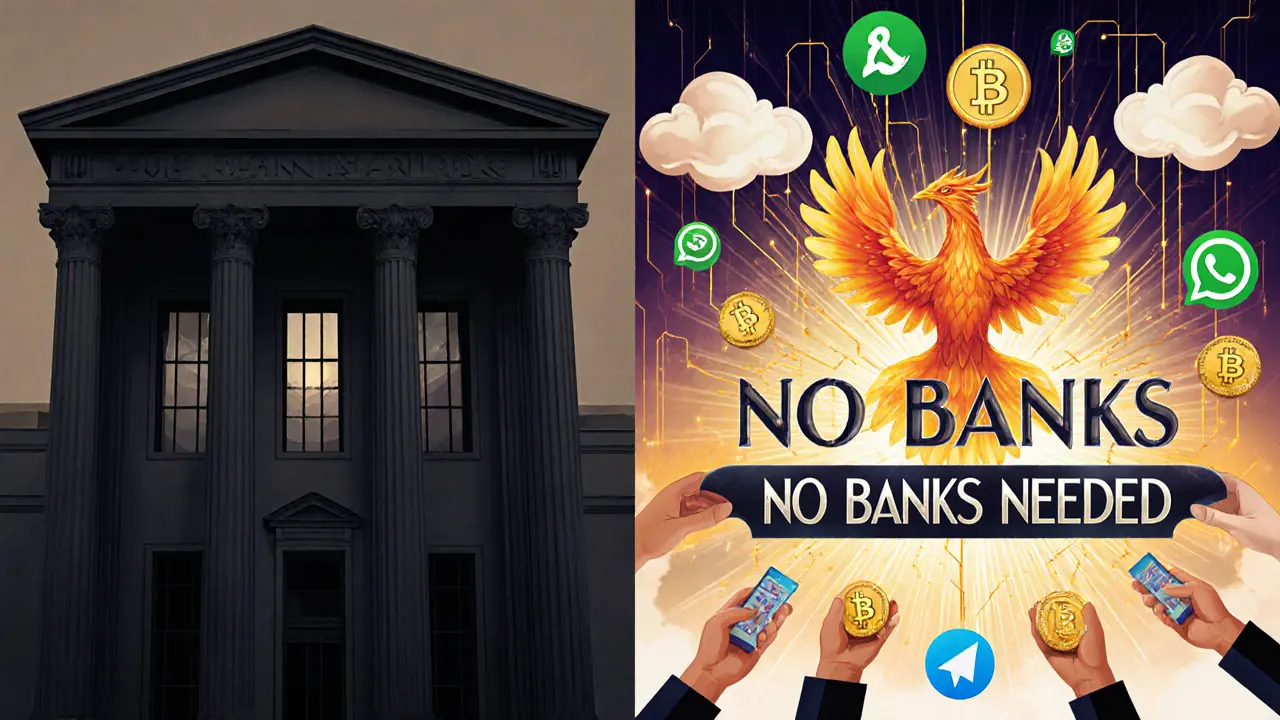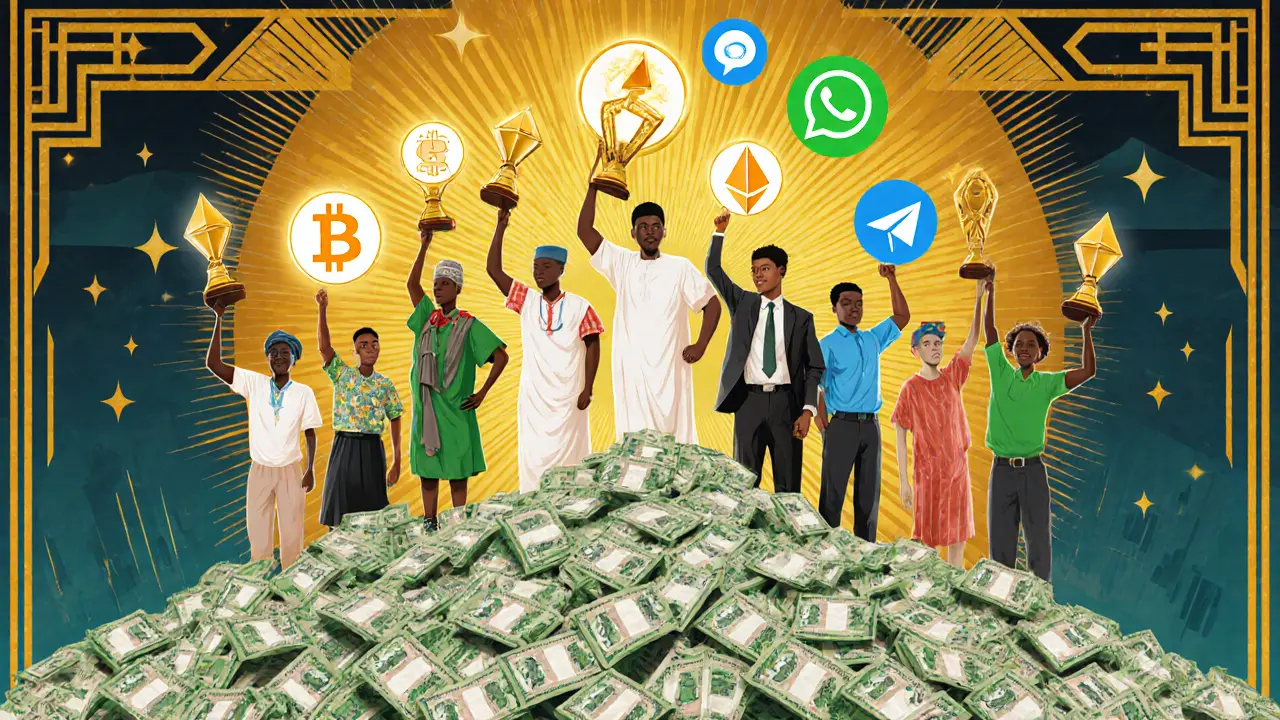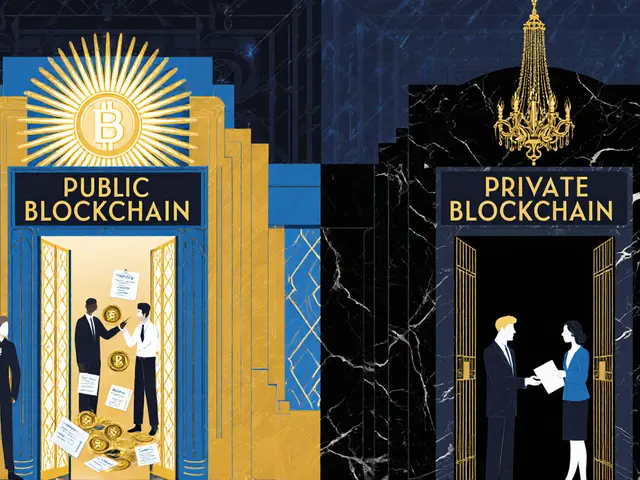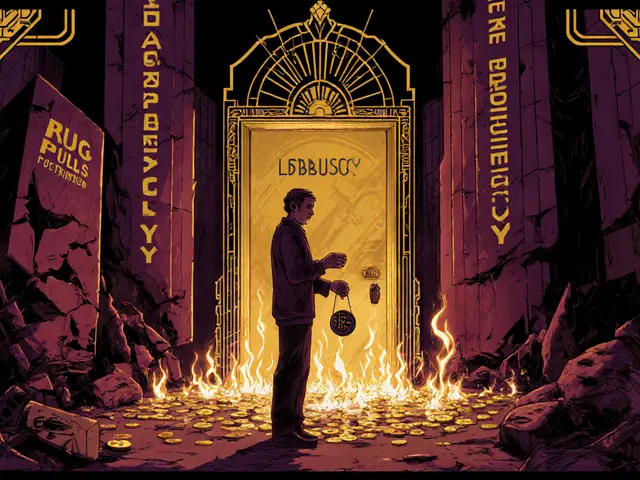Nigeria P2P Trading Risk Calculator
Based on data from Nigeria's underground crypto economy during the 2021-2023 ban. Estimate your scam risk based on your trading habits.
How to Use This Tool
Enter your trading details below to calculate your estimated scam risk. Based on community data showing 42% of traders were scammed during the ban.
Your Risk Assessment
Estimated scam risk: 42%
Based on data from 2021-2023 Nigeria P2P market
Key Insights
Test trades reduced scam rates by 37% in Nigeria's community trading systems. Trust scores above 85 significantly lower risk. Transactions over ₦10,000 carry 2.3x more risk than smaller trades.
When Nigeria’s Central Bank banned banks from handling cryptocurrency transactions in February 2021, most people assumed crypto trading would die out. Instead, it exploded. Nigerians didn’t stop buying Bitcoin or Ethereum-they just stopped using banks. What followed wasn’t chaos. It was innovation. A massive, decentralized, community-run underground crypto economy rose up, built on WhatsApp groups, Telegram channels, and peer-to-peer platforms like Binance P2P. By the time the ban officially ended in December 2023, Nigeria had become the second-most crypto-adoption-heavy country in the world, according to Chainalysis. And it all happened without a single legal bank account to help.
The Ban Didn’t Stop Crypto-It Just Moved It Underground
The Central Bank of Nigeria’s order on February 5, 2021, was clear: financial institutions couldn’t process crypto-related payments. Accounts linked to exchanges were frozen. Employees were told to cut ties. But here’s the twist: the ban didn’t say individuals couldn’t own or trade crypto. It only blocked banks from helping. That loophole became the foundation of a national work-around. People didn’t need banks to trade. They just needed trust. And Nigerians built that trust themselves. Instead of relying on banks to verify payments, they turned to P2P platforms where buyers and sellers connected directly. Binance P2P became the backbone of this system. By late 2022, over 1.2 million Nigerians were using it every month, moving around $150 million in naira for crypto. That’s not small change. That’s a parallel financial system, built by regular people.How Did People Actually Trade Without Banks?
Trading crypto without banks sounds impossible-until you see how Nigerians did it. They didn’t use wire transfers or online banking. They used what they had: mobile money, airtime top-ups, and cash deposits at local shops. One common method? A buyer would send money to a seller’s account at a local bank branch, then send a screenshot of the receipt to the seller’s WhatsApp group. The seller, seeing the proof, would release the Bitcoin. It was slow. It was manual. But it worked. WhatsApp became the de facto trading floor. Groups with 50,000+ members shared lists of trusted traders, warned about scammers, and even ran live auctions for crypto prices. Telegram channels did the same, but with real-time price feeds and automated bots that updated rates every minute. Some traders even used QR codes to send payment confirmations instantly. The system wasn’t perfect-but it was fast, cheap, and always available.The Rise of Community Trust Systems
Without government oversight, trust became the only currency. And Nigerians invented new ways to build it. Every major P2P platform had a reputation system. Traders earned ratings based on how quickly they released crypto after payment. Miss a deadline? Your rating dropped. Get reported for scamming? You got blacklisted across multiple WhatsApp groups. One of the smartest innovations? The trade verification protocol. New traders were advised to start with tiny test trades-₦500 ($0.60)-before moving to larger amounts. If the seller delivered the crypto on time, the buyer knew they could trust them. This simple rule cut scam rates by 37%, according to community data from CryptoNaija. It wasn’t tech. It wasn’t regulation. It was human behavior, optimized. YouTube also played a huge role. Channels like “Crypto With Tolu” grew to 247,000 subscribers by 2023, teaching new users how to avoid scams, spot fake payment receipts, and navigate bank restrictions. These weren’t influencers. They were neighbors, students, and small business owners sharing what they learned the hard way.Who Was Really Using Crypto?
This wasn’t just for tech bros or investors. The underground economy was fueled by students, market vendors, freelancers, and young professionals. A 2022 survey found 68% of traders were between 18 and 35. Students made up 41%-many using crypto to pay for tuition, books, or even rent. One Reddit user, LagosTrader87, started with ₦5,000 in March 2021. By December 2022, he had ₦2.3 million in crypto, funding his entire university education. Small business owners used crypto to import goods from China or pay for cloud services without worrying about forex restrictions. Freelancers got paid in Bitcoin instead of waiting weeks for international wire transfers. Even farmers and traders in rural areas started accepting crypto through mobile money apps. The ban didn’t just affect the urban elite-it reshaped how everyday Nigerians handled money.The Dark Side: Scams, Frozen Accounts, and No Recourse
For every success story, there was a loss. Nearly 42% of traders reported being scammed at least once. One common trick? A seller would claim they sent crypto, but the transaction never went through. The buyer, trusting the screenshot, would release the naira. Then the seller vanished. No bank, no exchange, no government agency would help. There was no chargeback. No customer service line. And then there were the frozen bank accounts. Sixty-seven percent of traders who received crypto payments through informal channels later found their personal accounts blocked. Banks flagged the deposits as “suspicious.” Some people lost access to their life savings just because they’d bought Bitcoin. One user on Reddit, AbujaInvestor, lost ₦380,000 ($450) when a seller disappeared after he sent payment. He had no legal recourse. Just a screenshot and a broken trust.
Why Nigeria’s Underground Market Was Different
Other countries tried to ban crypto too. China shut it down completely. Egypt blocked access to exchanges. But Nigeria’s approach was different. It didn’t ban ownership. It banned banks. That made all the difference. People could still trade. They just had to be creative. That’s why Nigeria’s crypto volume exploded. Between July 2021 and June 2022, Nigerians moved $56.7 billion in crypto-more than any other African country. That’s 1.2% of all global crypto transactions. For a country with only 0.1% of the world’s GDP, that’s insane. It wasn’t just demand. It was necessity. When inflation hit 20% and the naira kept falling, crypto became a lifeline.The Ban Ended-But the Underground Didn’t Disappear
When the CBN lifted the ban in December 2023, many thought P2P trading would fade. It didn’t. In fact, the underground infrastructure became the new normal. Licensed exchanges now use the same WhatsApp groups and trust systems that were built during the ban. The only difference? Now they’re regulated. But regulators still don’t fully trust P2P. In February 2024, Binance P2P was banned again-this time by the SEC, which claimed it was “undermining the naira.” But the ban didn’t stop trading. It just pushed it to smaller platforms and private groups. The tools are still there. The networks are still active. And the trust systems? They’re stronger than ever.What’s Next for Nigeria’s Crypto Economy?
The Investments and Securities Act of March 2025 now classifies crypto as a financial security. That means it’s legal-but taxed. Starting in 2026, a 25% tax on crypto profits kicks in. Will that drive people back underground? Probably. Many traders already say they’d rather pay in cash than file paperwork. What’s clear is this: Nigeria didn’t just survive a crypto ban. It rewrote the rules. It showed the world that when people are locked out of the system, they build their own. No bank needed. No permission required. Just trust, ingenuity, and a whole lot of WhatsApp.Was crypto illegal in Nigeria during the ban?
No. The Central Bank of Nigeria banned banks and financial institutions from handling crypto transactions, but individuals were never prohibited from owning or trading cryptocurrency. The ban targeted institutions, not people. This legal gray area allowed the underground economy to grow without breaking any laws.
How did Nigerians trade crypto without banks?
They used peer-to-peer platforms like Binance P2P, WhatsApp groups, and Telegram channels. Buyers sent money via mobile money, cash deposits, or bank transfers to trusted sellers, then shared payment screenshots. Sellers released crypto only after confirming the payment. Many used small test trades to build trust before larger deals.
What was the biggest risk of trading crypto underground?
The biggest risks were scams and frozen bank accounts. About 42% of traders reported being scammed, often by sellers who disappeared after receiving payment. Around 67% had their personal bank accounts frozen because banks flagged crypto-related deposits as suspicious. There was no official way to recover lost funds.
Why did Nigeria rank so high in crypto adoption despite the ban?
Nigeria ranked second globally in crypto adoption in 2022 because the ban pushed people to find creative solutions. With high inflation, weak currency, and limited access to foreign exchange, crypto became a practical tool for saving, sending money, and buying goods. The community-driven P2P system made it accessible even without banks.
Is P2P crypto trading still popular in Nigeria after the ban was lifted?
Yes. Even after the ban ended in December 2023, P2P trading remains the most common way Nigerians buy and sell crypto. Licensed exchanges still rely on the same networks built during the ban-WhatsApp groups, reputation systems, and community trust. The government has tried to ban P2P again, but the infrastructure is too deeply embedded to disappear.




Kevin Mann
November 7, 2025 AT 20:00Kathy Ruff
November 8, 2025 AT 05:13Robin Hilton
November 9, 2025 AT 20:30Nitesh Bandgar
November 10, 2025 AT 02:32Jessica Arnold
November 11, 2025 AT 07:23Stephanie Tolson
November 13, 2025 AT 07:11Chris Hollis
November 15, 2025 AT 05:05Vivian Efthimiopoulou
November 15, 2025 AT 19:34Brian Webb
November 16, 2025 AT 10:55Whitney Fleras
November 16, 2025 AT 16:59Grace Huegel
November 18, 2025 AT 11:06Sunidhi Arakere
November 18, 2025 AT 17:30Colin Byrne
November 19, 2025 AT 12:08Chloe Walsh
November 20, 2025 AT 10:06Angie Martin-Schwarze
November 20, 2025 AT 22:33Veeramani maran
November 21, 2025 AT 12:51Diana Smarandache
November 23, 2025 AT 06:09Leo Lanham
November 24, 2025 AT 18:05